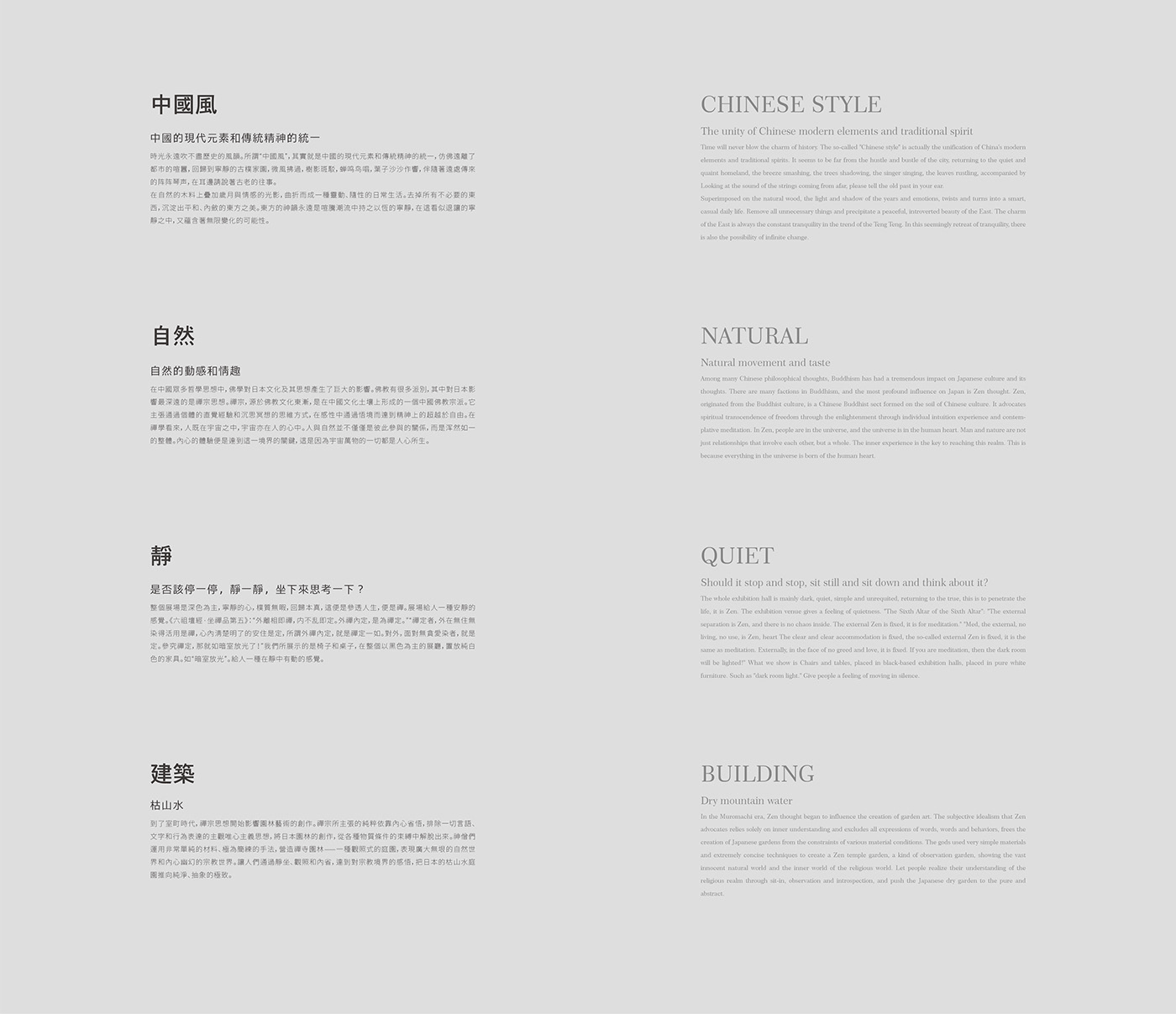禪
之
居
|

禪
Zen
「禪」佛教“禪那”的簡稱,梵語的音譯。也有譯為“棄惡”或“功德叢林”者。其意譯為“思维修”或“靜慮”。
是佛教的一種修持方法,其中有祖師禪與佛祖禪的區別。
言思維修是依因立名,意指一心思維研修為因,得以定心,故謂之思維修。
言靜慮者是依體立名,其禪那之體,寂靜而具審慮之用者,故謂之靜慮。
靜即定,慮即慧,定慧均等之妙體曰“禪那”。
也就是佛家一般講的參禪。虛靈寧靜,把外緣(外在事物)都摒棄掉,不受其影響;
把神收回來,使精神返現自身(非肉身)即是“禪”。
The abbreviation of "Zen" in Buddhism, the transliteration of Sanskrit. There are also those who translate as "abandoning evil" or "gongde jungle".
It is translated as “thinking for maintenance” or “contemplation”.
It is a method of practice in Buddhism, in which there is a difference between the ancestral Zen and the Buddha Zen.
The maintenance of thinking is based on the name of the cause, which means that the mind is thinking and training, and it is possible to fix the heart.
The person who is quiet is the name of the body, the body of the Zen, the quiet and discreet user, it is said to be quiet.
Quietly determined, thinking that is Hui, Ding Hui is equal to the wonderful body of "Zen".
It is also the meditation of Buddhism. The spirit is quiet, and the outer edge (external things) is discarded and is not affected by it;
Taking back God and returning the spirit to itself (non-physical) is "Zen."
It is a method of practice in Buddhism, in which there is a difference between the ancestral Zen and the Buddha Zen.
The maintenance of thinking is based on the name of the cause, which means that the mind is thinking and training, and it is possible to fix the heart.
The person who is quiet is the name of the body, the body of the Zen, the quiet and discreet user, it is said to be quiet.
Quietly determined, thinking that is Hui, Ding Hui is equal to the wonderful body of "Zen".
It is also the meditation of Buddhism. The spirit is quiet, and the outer edge (external things) is discarded and is not affected by it;
Taking back God and returning the spirit to itself (non-physical) is "Zen."











Dry landscape
The unity of the China's modern elements and traditional spirit
Natural feeling and interest
Whether I should stop, quiet a quiet, sit down and think about it?


